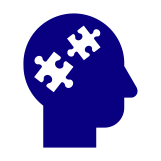PSHE

Teaching and Learning of Personal, Social, Health and Economic (PSHE) Education
Personal, social, health and economic (PSHE) education is an important and necessary part of all pupils’ education. At Wateringbury, we use the Jigsaw scheme in order to cover the many areas of study across the subject. From Reception to Year 6, this programme equips children with a knowledge of a wide range of real-life situations and the skills needed to make safe and informed decisions about their own life.
Each year the children cover 6 main areas:
- Being me in my world
This includes:
- Helping others feel welcome
- Trying to make school a better place
- Thinking about everyone’s right to learn
- Caring about people’s feelings
- Working well with others
- Celebrating difference
- Accepting that everyone is different
- Including everyone in work and play
- Solving problems
- Using kind words and giving compliments
- Dreams and goals
- Staying motivated when doing something challenging
- Working well with a partner or group
- Having a positive attitude
- Helping others achieve their dreams and goals
- Working hard to achieve your own dreams and goals
- Healthy Me
- Making healthy choices
- Eating a balanced diet
- Being physically active
- Staying safe
- Enjoying healthy friendships
- How to stay calm in difficult situations
- Relationships
- How to make friends
- How to solve friendship problems
- Helping others feel part of a group
- Showing respect
- Showing what makes a good friendship
- How to help themselves when they feel sad or hurt
- Changing Me
- Understand that everyone is unique and special
- Expressing how they feel when change happens
- Understand and respect the changes they see in themselves and others
- Knowing who to ask for help is they are worried about change
- Looking forward to change
Please note that during the ‘Changing Me’ part of our curriculum, children will be introduced to not only changes in their lives but changes in their bodies. This very gently and appropriately leads up to sex education in Year 6. The structured of this is as follows:
Reception – My body and respecting my body. Understanding that we all grow from babies to adults.
Year 1 and 2 - Differences between girls’ and boys’ bodies and how to respect what is private.
Year 3 – How babies grow and that in most animals, including humans, it is the female who has the baby.
Year 4 – Having a baby and the names of internal and external parts of female and male bodies. They will also learn about girls and puberty.
Year 5 – Puberty for girls and boys. Conception.
Year 6 – Puberty, conception: pregnancy to birth, boyfriends and girlfriends
